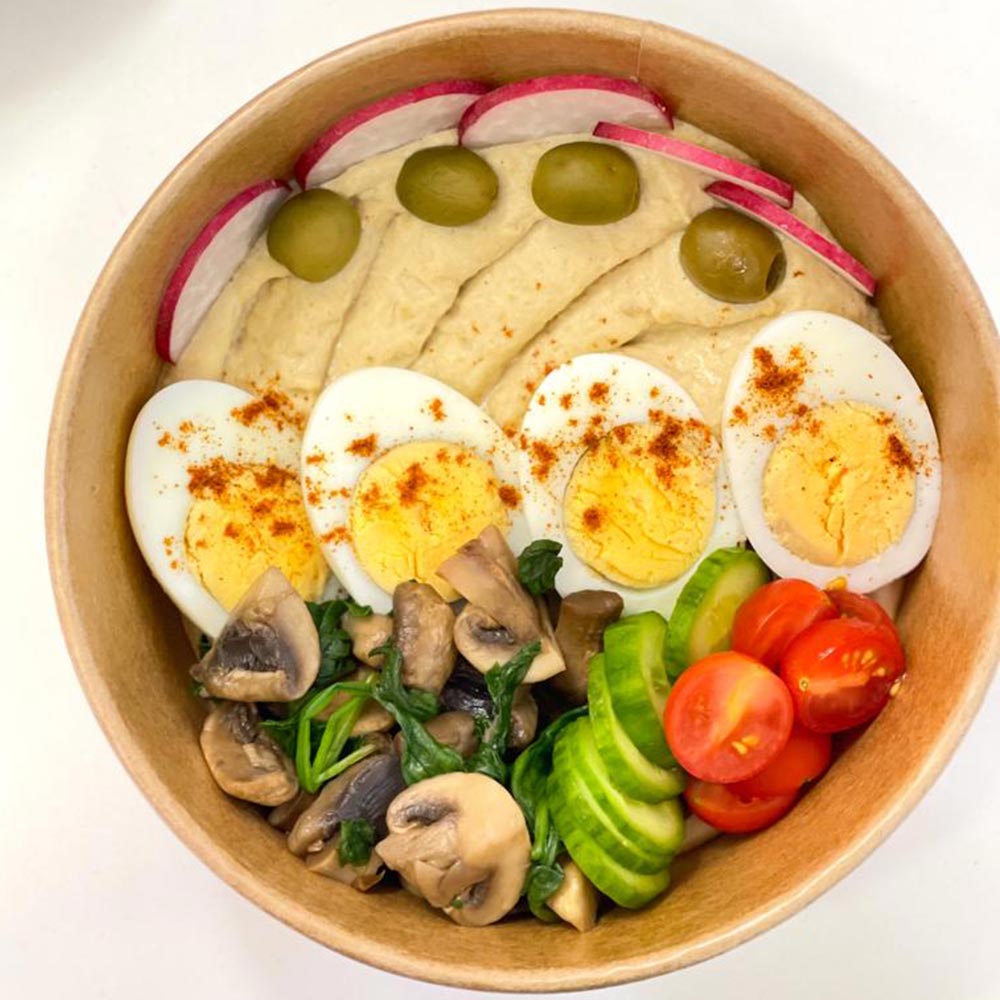When it comes to building muscle, protein is key. Consuming
an adequate amount of high-quality protein is essential for muscle recovery and
growth. In this blog post, we will delve into the secret high protein
foods for muscle building growth and help you achieve your fitness goals
faster. From lean sources of protein to plant-based options and effective
protein supplements, we will explore how you can maximize your protein intake
for optimal muscle development. Stay tuned to discover the top protein-rich
foods that can supercharge your muscle-building journey.
Maximizing Protein Intake for Muscle Growth
When it comes to building muscle, protein intake plays a
crucial role in the process. Protein is essential for muscle repair and growth,
making it an important component of any muscle-building diet. Understanding the
importance of consuming adequate protein and choosing high-quality protein
sources can significantly impact your muscle development journey.
Benefits of Consuming High-Quality Protein Sources for Muscle Recovery and Growth
High-quality protein sources contain all the essential amino
acids that your body needs to support muscle growth. Consuming proteins like
lean meats, fish, eggs, and dairy products can aid in muscle recovery after
intense workouts and promote muscle protein synthesis, ultimately leading to
muscle growth.
Strategies to Calculate and Meet Daily Protein Requirements for Optimal Muscle Development
Calculating your daily protein requirements can help ensure
that you are consuming enough protein to support muscle growth. A general
guideline is to consume around 0.8 to 1 gram of protein per pound of body
weight for individuals looking to build muscle. By incorporating protein-rich
foods into each meal and snack throughout the day, you can meet your protein
needs and maximize muscle growth.
Top High Protein Sources for Building Muscle
When it comes to building muscle, ensuring an adequate
intake of protein is essential. Protein is crucial for muscle recovery and
growth, making it a key component of any muscle-building diet. Here are some of
the top high protein sources that you can incorporate into your meals to
support muscle development:
1. Lean Protein Sources:
- Chicken Breast: A great source of lean protein, chicken
breast is low in fat and high in protein.
- Fish: Fish such as salmon, tuna, and trout are not only rich
in protein but also provide essential omega-3 fatty acids.
- Tofu: A popular plant-based protein source, tofu is
versatile and can be used in a variety of dishes.
2. Plant-Based Protein Options:
- Quinoa: A complete protein, quinoa is packed with all nine
essential amino acids that the body needs for muscle growth.
- Lentils: High in protein and fiber, lentils are a great
plant-based option for muscle building.
3. Dairy Products:
- Greek Yogurt: Greek yogurt is not only high in protein but
also contains probiotics that support gut health.
- Cottage Cheese: A low-fat dairy option, cottage cheese is
rich in casein protein, which is slow-digesting and ideal for muscle recovery.
By incorporating these high protein sources into your meals,
you can ensure that your body has the necessary building blocks to support
muscle growth and recovery.
Balanced Diet Plan for Muscle Building
When it comes to building muscle, it's not just about
protein intake - you also need a well-balanced diet to support your fitness
goals. Here are some key components to consider in your diet plan:
1. Protein
Protein is essential for muscle growth and repair. Include
lean sources of protein such as chicken breast, fish, turkey, tofu, and legumes
like lentils and chickpeas in your meals. Dairy products like Greek yogurt and
cottage cheese are also great options.
2. Carbohydrates
Carbohydrates are important for providing energy during
workouts. Opt for complex carbohydrates like whole grains, sweet potatoes, and
fruits to fuel your muscles.
3. Fats
Healthy fats are essential for hormone production and
overall health. Include sources of omega-3 fatty acids like salmon, nuts, seeds,
and avocado in your diet.
4. Fruits and Vegetables
Fruits and vegetables are rich in vitamins, minerals, and
antioxidants that support muscle recovery and overall health. Aim to include a
variety of colorful fruits and vegetables in your meals.
5. Meal Planning
Plan your meals in advance to ensure you're meeting your
macronutrient needs. Choose a variety of foods from each food group to ensure a
balanced diet that supports muscle building.
By following a well-rounded diet plan that includes protein,
carbohydrates, fats, fruits, and vegetables, you can fuel your workouts and
support muscle growth effectively.
Protein-rich Foods for Optimal Performance
When it comes to maximizing your performance in the gym or during
any physical activity, the role of protein cannot be overstated. Protein is
essential for muscle repair, recovery, and growth, making it a crucial
component of any athlete or fitness enthusiast's diet.
By incorporating protein-rich foods into your meals, you can
ensure that your body has the necessary building blocks to support your
training efforts and optimize your performance. Here are some key protein-rich
foods that can help you achieve optimal performance:
1. Lean Meats
- Chicken breast
- Turkey
- Lean cuts of beef
2. Fish
- Salmon
- Tuna
- Trout
3. Eggs
- Whole eggs
- Egg whites
4. Dairy
- Greek yogurt
- Cottage cheese
- Milk
5. Plant-based Protein Sources
- Quinoa
- Lentils
- Chickpeas
By incorporating a variety of these protein-rich foods into
your diet, you can ensure that you are fueling your body with the nutrients it
needs to perform at its best. Whether you're looking to improve your endurance,
strength, or overall fitness, protein-rich foods can help you achieve your
performance goals.
Incorporating High Protein Meals in Your Routine
Building muscle requires a consistent intake of high-quality
protein throughout the day. Here are some strategies for incorporating high
protein meals into your daily routine:
Breakfast:
- Start your day with protein-rich foods like eggs, Greek
yogurt, or a protein smoothie.
- Add some nuts, seeds, or nut butter to your breakfast for an
extra protein boost.
Lunch:
- Opt for lean protein sources like grilled chicken, tofu, or
turkey in your salads or wraps.
- Incorporate beans, lentils, or quinoa into your lunch for
plant-based protein options.
Dinner:
- Include a protein source like salmon, lean beef, or tempeh
in your dinner meals.
- Pair your protein with a side of vegetables and complex
carbohydrates for a balanced meal.
Meal prepping can also be a helpful strategy for ensuring
you have high protein meals ready to go. Plan your meals in advance, cook in
bulk, and portion out your protein sources to make mealtime easier and more
convenient. By consistently incorporating high protein foods into your meals,
you can support muscle growth and recovery effectively.
Effective Protein Supplements for Muscle Growth
Protein supplements play a crucial role in filling nutrient
gaps for muscle growth, especially for individuals who may have difficulty
meeting their protein requirements through whole foods alone. There are various
types of protein supplements available on the market, each offering unique
benefits for muscle recovery and development.
Types of Protein Supplements:
1. Whey Protein: Whey protein is a popular choice among
fitness enthusiasts due to its fast absorption rate, making it ideal for
post-workout recovery. It is derived from milk and contains high levels of
essential amino acids necessary for muscle building.
2. Casein Protein: Casein protein is a slow-digesting
protein that provides a sustained release of amino acids, making it beneficial
for consuming before bedtime to support overnight muscle repair and growth.
3. Plant-Based Protein: Plant-based protein supplements,
such as pea protein or soy protein, are excellent options for individuals
following a vegan or vegetarian diet. These alternatives offer high-quality
protein sources without the use of animal products.
Guidelines for Choosing Protein Supplements:
When selecting a protein supplement, it's essential to
consider your individual fitness goals and dietary preferences. Look for
products that are third-party tested for quality and purity, and opt for
options with minimal added sugars or artificial ingredients.
Additionally, consider the timing of your protein supplement
consumption. Whey protein is typically recommended post-workout for rapid
muscle recovery, while casein protein may be better suited for nighttime
consumption to support overnight muscle repair.
Experiment with different types of protein supplements to
determine which ones work best for your body and support your muscle growth
goals effectively.
Enhancing Muscle Recovery with High Protein Foods
Protein plays a crucial role in muscle repair and recovery
post-exercise. By incorporating high protein foods into your diet, you can aid
in the recovery process and support muscle growth.
Here are some recommendations for including protein-rich
snacks and meals to enhance muscle recovery:
- Include lean sources of protein such as chicken, turkey, or
fish in your meals to promote muscle repair.
- Opt for Greek yogurt or cottage cheese as a snack option to
boost protein intake and support muscle recovery.
- Consider adding protein-rich foods like beans, lentils, or
tofu to your meals for sustained energy and muscle support.
- Timing is also essential when it comes to protein intake for
muscle recovery. Consuming protein-rich foods shortly after a workout can help
optimize muscle protein synthesis and reduce soreness.
By incorporating high protein foods into your diet
strategically, you can enhance muscle recovery, promote growth, and improve
overall performance in your workouts.
Creating a Protein-packed Meal Prep Strategy
Meal prepping protein-packed meals can be a game-changer for
busy individuals looking to build muscle and maintain a healthy diet. By planning
and organizing your meals in advance, you can ensure that you're getting the
right amount of protein to support muscle growth. Here are some tips for
creating a protein-packed meal prep strategy:
1. Benefits of Meal Prepping: Meal prepping allows you to
save time during the week, stay on track with your nutrition goals, and avoid
the temptation of unhealthy food choices.
2. Planning and Organizing: Take some time each week to
plan your meals and snacks, making sure to include a variety of protein sources
such as chicken, beef, fish, tofu, beans, and lentils.
3. Batch Cooking: Cook large batches of protein sources
like grilled chicken, quinoa, or roasted chickpeas that you can easily
incorporate into different meals throughout the week.
By creating a protein-packed meal prep strategy, you can set
yourself up for success in reaching your muscle-building goals while
maintaining a balanced and nutritious diet.
Boosting Muscle Mass with High Protein Snacks
When it comes to building muscle mass, incorporating high
protein snacks into your diet can be a game-changer. These snacks not only
provide your body with the necessary protein for muscle growth but also help
keep you satisfied and energized throughout the day. Here are some ideas for
high protein snacks to support your muscle-building goals:
1. Nuts: Almonds, walnuts, and peanuts are all excellent
sources of protein and healthy fats. Grab a handful of nuts as a quick and easy
snack to fuel your muscles.
2. Yogurt: Greek yogurt is a great option for a
protein-packed snack. Opt for plain Greek yogurt and add your favorite fruits
or nuts for extra flavor and nutrients.
3. Protein Bars: Look for protein bars that are low in
sugar and high in protein. These bars are convenient and portable, making them
perfect for on-the-go muscle building.
Snacking on high protein foods in between meals can help
maintain muscle protein synthesis and support your overall muscle development.
Incorporate these snacks into your daily routine to keep your muscles fueled
and ready for growth.
The Impact of Protein Timing on Muscle Development
Timing protein intake around workouts is crucial for
optimizing muscle development and recovery. The window of opportunity to
maximize muscle protein synthesis is often referred to as the "anabolic
window," which is the period immediately before and after exercise.
Studies have shown that consuming protein-rich foods or
supplements within this anabolic window can promote muscle repair, growth, and
recovery. By providing your muscles with the necessary amino acids during this
time, you can enhance protein synthesis and improve overall muscle development.
It is recommended to consume a combination of fast-digesting
proteins, such as whey protein, and slow-digesting proteins, like casein, to
support sustained protein release throughout the day. This can help maintain
muscle protein synthesis levels and aid in muscle recovery over an extended
period.
Additionally, spreading protein intake evenly throughout the
day, including pre and post-workout meals, can further support muscle
development. By incorporating high-quality protein sources into each meal, you
can ensure that your muscles are continuously supplied with the nutrients they
need to grow and repair.
In conclusion, paying attention to the timing of your
protein intake and incorporating protein-rich foods around your workouts can
have a significant impact on muscle development. By strategically planning your
meals and snacks to include adequate protein, you can effectively support
muscle growth, recovery, and overall performance.
Conclusion
In conclusion, incorporating high protein foods into your
diet is essential for accelerating muscle growth and maximizing your
performance in the gym. By understanding the importance of adequate protein
intake, exploring different sources of protein, and implementing a balanced
diet plan, you can effectively support muscle development and recovery. Whether
you prefer lean sources of protein, plant-based options, or protein
supplements, there are numerous ways to ensure you meet your daily protein
requirements for optimal muscle growth. By following a protein-packed meal prep
strategy, including high protein snacks, and timing your protein intake
strategically, you can take your muscle-building efforts to the next level.
Remember, consistency is key when it comes to incorporating high protein foods
into your routine, so make sure to prioritize your protein intake to see
significant gains in muscle mass and performance.






























